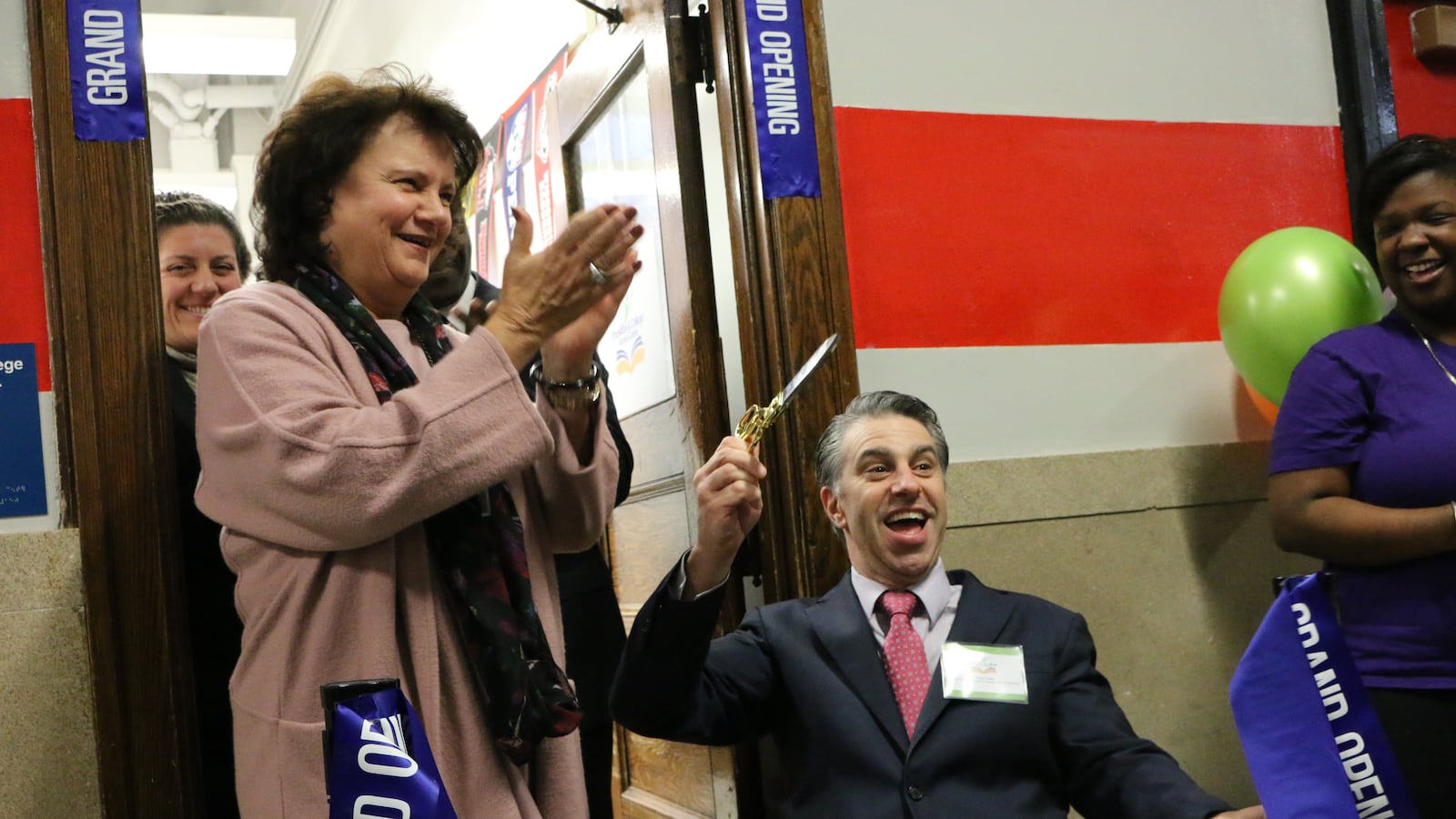Corinne Rello-Anselmi, a senior education department official who helped oversee the city’s sprawling special education bureaucracy under three chancellors, is planning to retire this month.
“I think we’re in a good place and it’s time for new leadership to take over,” Rello-Anselmi, the deputy chief academic officer overseeing special education, told Chalkbeat this week.
Education officials are in the midst of interviewing candidates, and plan to announce her successor in the coming weeks.
Rello-Anselmi helped steer the system of 228,000 students with special needs, larger than Houston’s entire public student population. A roughly 40-year veteran of the city’s public school system, Rello-Anselmi is known for her no-nonsense attitude, sharp elbows, and willingness to hear out parents and advocates, even when they’re criticizing her for the system’s various shortcomings.
“She did not have an easy job by any means,” said Lori Podvesker, a special education policy expert at INCLUDEnyc and member of the city’s Panel for Educational Policy.
Rello-Anselmi got her start as a special education teacher at P.S. 108 in the Bronx and almost immediately became concerned about the extent to which special education students were isolated — a theme that would come to define her tenure in the department.
“When I got to the school I questioned why I was the self-contained special education teacher,” she told Chalkbeat in 2013. “It was very isolated, I could not understand why. My journey through that whole time was my core belief that our students learning in a separate program was not going to get the outcomes that were intended.”
After a dozen years of teaching, she worked her way up into supervisory positions, eventually becoming the P.S. 108 principal and revamping its literacy program. She made the jump to administrator in the Bloomberg administration, and was promoted to deputy chancellor to help oversee reforms designed to integrate more students with disabilities into traditional classrooms.
Rello-Anselmi helped implement that sweeping rollout, starting citywide in 2012, which allowed students with disabilities to enroll at the same schools as typically developing students in their neighborhoods, learning alongside them whenever possible.
Many schools have struggled with that mandate, though some advocates said the shift has been enormously important.
“The biggest contribution she made is getting the education of students with disabilities out of special ed and into general ed,” Podvesker said.
She continued serving as deputy chancellor in the de Blasio administration under Carmen Fariña, but after about six years, her role shifted when Richard Carranza took the helm.
Carranza reorganized the department’s top leadership, eliminating a cabinet-level position focused on special education. That meant Rello-Anselmi, who previously reported directly to the chancellor, then reported to the department’s chief academic officer, a role revived under Carranza.
Despite concerns from some advocates, Rello-Anselmi has insisted that the change was a positive one for the department.
“What happened with this current reorg really made me feel that people understand that it’s not just my responsibility to make sure kids get served, but it’s everyone’s responsibility,” she said. She acknowledged that it was at times “painful for me,” but added, “it was worth the fight because now everyone’s being held responsible for outcomes and services for kids.”
At City Council hearings and in meetings with parents and advocates, she has been asked to answer for deep flaws in the city’s special education system: the thousands of students who don’t receive the services for which they are entitled, the dysfunctional special education data system that has cost the city hundreds of millions of dollars, and the lack of translation services for families who don’t speak English.
Still, there have been improvements on her watch: About 78% of special education students are receiving all of the services required on their special ed learning plans, a number that has crept up in recent years. The city is planning to invest in a brand new special ed data system. And it has made incremental changes to support students whose families don’t speak English.
“There’s a really long way to go to make sure students get all the services they need,” said Maggie Moroff, a special education expert at Advocates for Children, “but the will is there.”
Moroff noted that Rello-Anselmi meets three or four times a year with a large coalition of advocates and parents to hear out their concerns — even though the meetings can sometimes be contentious over the system’s flaws.
That group plans to celebrate Rello-Anselmi’s retirement at a regularly scheduled meeting with her next week.
“We’re bringing a cake,” Moroff said.

